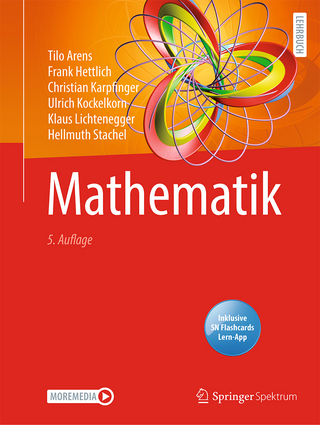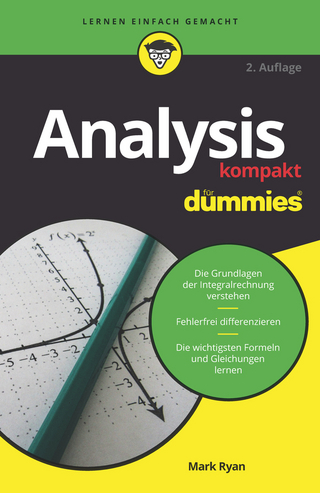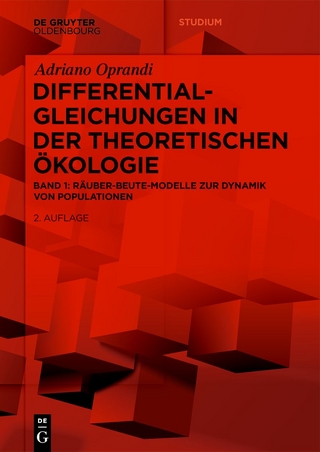A Geometric Approach to Differential Forms
Seiten
2011
|
2nd ed. 2012
Birkhauser Boston Inc (Verlag)
978-0-8176-8303-0 (ISBN)
Birkhauser Boston Inc (Verlag)
978-0-8176-8303-0 (ISBN)
Throughout the text, emphasis is placed on applications in 3 dimensions, but all definitions are given so as to be easily generalized to higher dimensions.
The second edition includes a completely new chapter on differential geometry, as well as other new sections, new exercises and new examples.
The modern subject of differential forms subsumes classical vector calculus. This text presents differential forms from a geometric perspective accessible at the advanced undergraduate level. The author approaches the subject with the idea that complex concepts can be built up by analogy from simpler cases, which, being inherently geometric, often can be best understood visually.
Each new concept is presented with a natural picture that students can easily grasp; algebraic properties then follow. This facilitates the development of differential forms without assuming a background in linear algebra. Throughout the text, emphasis is placed on applications in 3 dimensions, but all definitions are given so as to be easily generalized to higher dimensions.
The second edition includes a completely new chapter on differential geometry, as well as other new sections, new exercises and new examples. Additional solutions to selected exercises have also been included. The work is suitable for use as the primary textbook for a sophomore-level class in vector calculus, as well as for more upper-level courses in differential topology and differential geometry.
The second edition includes a completely new chapter on differential geometry, as well as other new sections, new exercises and new examples.
The modern subject of differential forms subsumes classical vector calculus. This text presents differential forms from a geometric perspective accessible at the advanced undergraduate level. The author approaches the subject with the idea that complex concepts can be built up by analogy from simpler cases, which, being inherently geometric, often can be best understood visually.
Each new concept is presented with a natural picture that students can easily grasp; algebraic properties then follow. This facilitates the development of differential forms without assuming a background in linear algebra. Throughout the text, emphasis is placed on applications in 3 dimensions, but all definitions are given so as to be easily generalized to higher dimensions.
The second edition includes a completely new chapter on differential geometry, as well as other new sections, new exercises and new examples. Additional solutions to selected exercises have also been included. The work is suitable for use as the primary textbook for a sophomore-level class in vector calculus, as well as for more upper-level courses in differential topology and differential geometry.
Preface.- Guide to the Reader.-Multivariable Calculus.- Parameterizations.- Introduction to Forms.- Forms.- Differential Forms.- Differentiation of Forms.- Stokes' Theorem.- Applications.- Manifolds.- Non-linear Forms.- References.- Index.- Solutions.
| Zusatzinfo | 43 Illustrations, black and white; XVI, 156 p. 43 illus. |
|---|---|
| Verlagsort | Secaucus |
| Sprache | englisch |
| Maße | 155 x 235 mm |
| Themenwelt | Mathematik / Informatik ► Mathematik ► Analysis |
| Mathematik / Informatik ► Mathematik ► Geometrie / Topologie | |
| Schlagworte | differential forms • Differenzialgeometrie • Maxwell's equations • nonlinear forms • parameterized curves • Stokes' theorem • Vector calculus |
| ISBN-10 | 0-8176-8303-8 / 0817683038 |
| ISBN-13 | 978-0-8176-8303-0 / 9780817683030 |
| Zustand | Neuware |
| Haben Sie eine Frage zum Produkt? |
Mehr entdecken
aus dem Bereich
aus dem Bereich
Buch | Softcover (2024)
De Gruyter Oldenbourg (Verlag)
59,95 €




